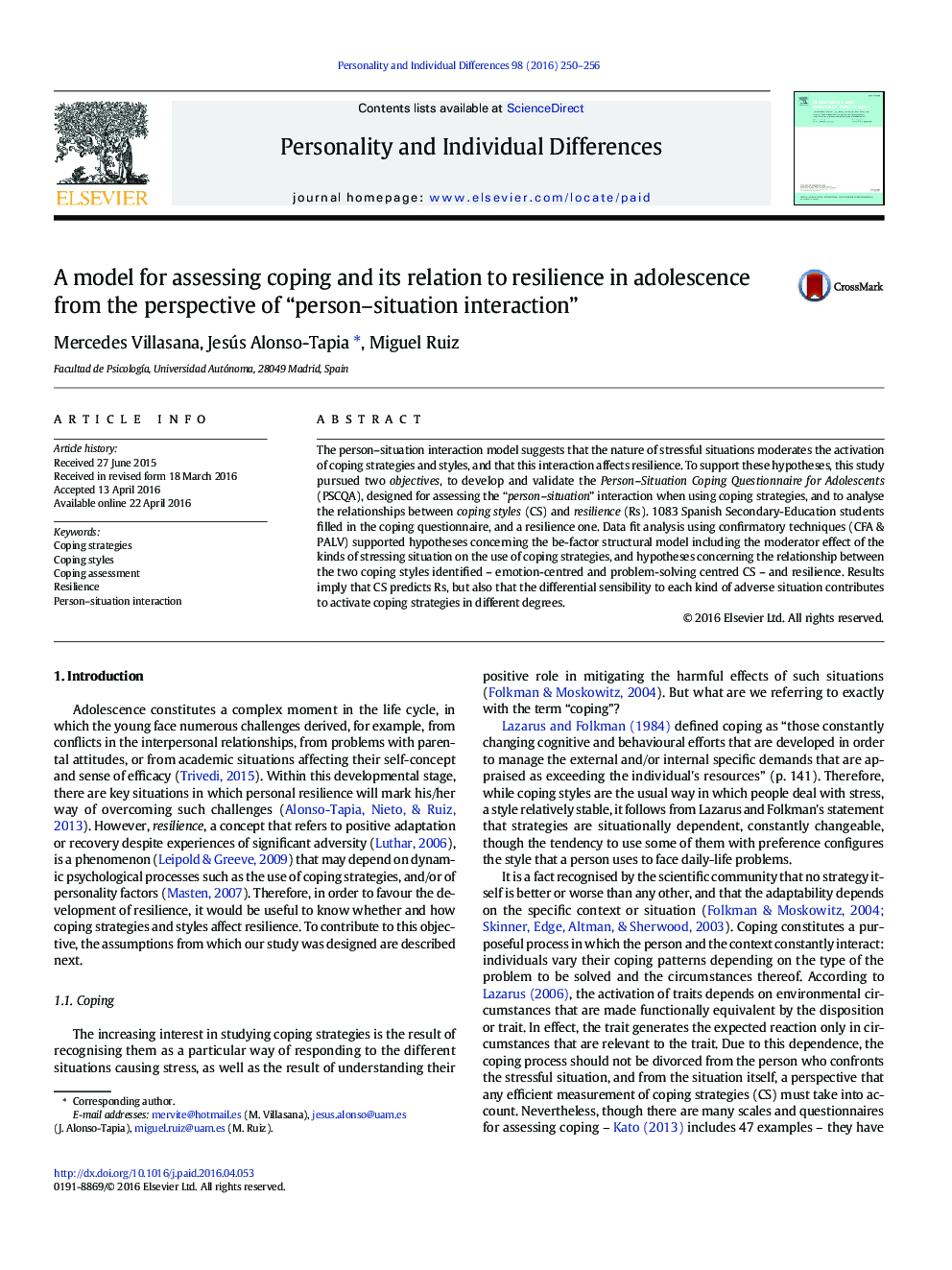| Article ID | Journal | Published Year | Pages | File Type |
|---|---|---|---|---|
| 7250060 | Personality and Individual Differences | 2016 | 7 Pages |
Abstract
The person-situation interaction model suggests that the nature of stressful situations moderates the activation of coping strategies and styles, and that this interaction affects resilience. To support these hypotheses, this study pursued two objectives, to develop and validate the Person-Situation Coping Questionnaire for Adolescents (PSCQA), designed for assessing the “person-situation” interaction when using coping strategies, and to analyse the relationships between coping styles (CS) and resilience (Rs). 1083 Spanish Secondary-Education students filled in the coping questionnaire, and a resilience one. Data fit analysis using confirmatory techniques (CFA & PALV) supported hypotheses concerning the be-factor structural model including the moderator effect of the kinds of stressing situation on the use of coping strategies, and hypotheses concerning the relationship between the two coping styles identified - emotion-centred and problem-solving centred CS - and resilience. Results imply that CS predicts Rs, but also that the differential sensibility to each kind of adverse situation contributes to activate coping strategies in different degrees.
Related Topics
Life Sciences
Neuroscience
Behavioral Neuroscience
Authors
Mercedes Villasana, Jesús Alonso-Tapia, Miguel Ruiz,
